#reference in spanish
Note
Random but I just dreamt of Soap being a taho vendor
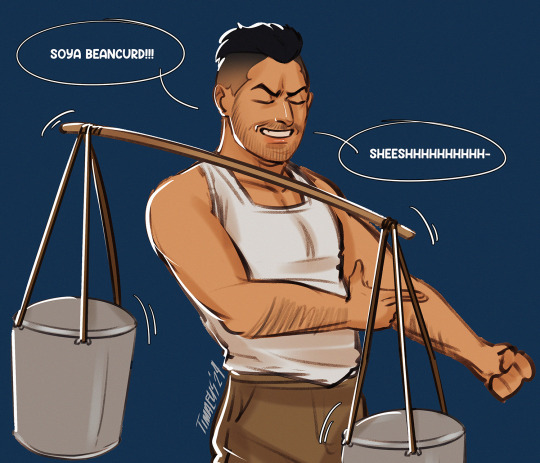
huy mare, let's be real. Soap would be a conyo-ass taho vendor.
(non-filos, here's a [vid] so you'd get what i mean by "conyo" HSAHSHASH)
#“Conyo” in Filipino refers to peeps born into English-speaking families btw#also i know it means different in Spanish!! please don't kill me HSAHSHSHSH#answered asks#samyurice#my art#2024#call of duty#cod#soap cod#soap mactavish#johnny soap mactavish
181 notes
·
View notes
Text

hoping i havent posted this twice
#i remembered references work and are useful#hobie brown#spiderverse#across the spiderverse#my art#spanish and irish exam tomorrow dear god#atsv
308 notes
·
View notes
Text
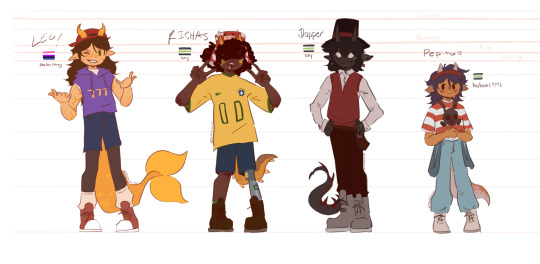
#qsmp#leonarda#richarlyson#pepito#dapper#qsmp fanart#fanart#heights of the girls in the background for comparison ndnsjja#tallulah is the tallest(she got the height from her dad) and pepito is the shortest#put pepitos prns tentatively as he/him cuz im not entirely sure but hes been referring to himself w he/him in spanish#i think the no pronouns thing was just a joke grgehwhabia and it doesnt translate at all to portugese spanish or french#and cuz everyone else uses he/him for him. idk maybe im wrong tho🤷 if anyone (preferably non gringo) wants to correct me please do 🙏
225 notes
·
View notes
Text
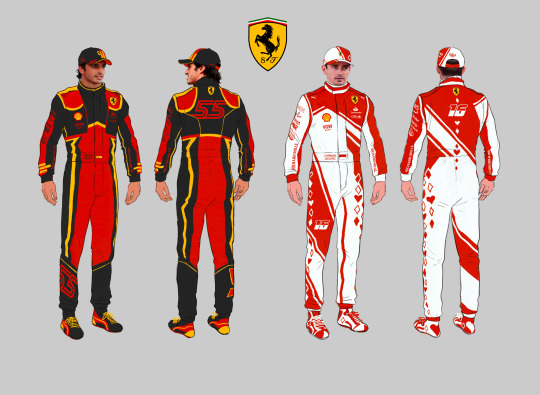
a little redesign project, my own takes on the Ferrari home race suits!! Carlos is based off of traje de luces 🐂 and Charles' is reminiscent of the red suits of cards 🃏 had a lot of fun with these, and will definitely do some more race suit designs in the future...
#get it because carlos is literally out there to FIGHT THE BULLS.......ITS POETIC.....#and charles' is not only in reference to casino land BUT he is also the diamond of monaco#and monaco is where his heart lies ❤️#anyways these were so fun 👼#charles leclerc#carlos sainz#scuderia ferrari#ferrari#f1#spanish gp 2023#monaco gp 2023#dave draws
794 notes
·
View notes
Text
i havent seen people mention this, but pol found a white chest near his base earlier!! in it was some coffee, along with a book. it reads,
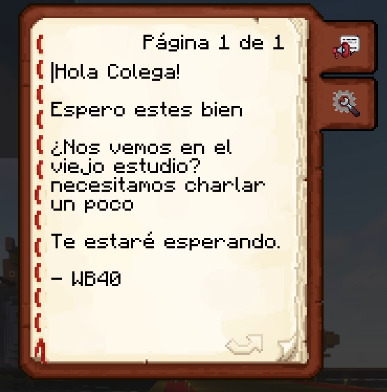
(my spanish is. Not the best so i apologize if this isn't the most accurate)
Hello Colleague!
I hope you're doing well.
See you at the old studio? We need to chat a little bit.
I'll be waiting for you.
- WB40
He used a warpstone to travel to a warp called "Z POL", which had a warp-plate there that lead him to the place where WB40 was waiting.
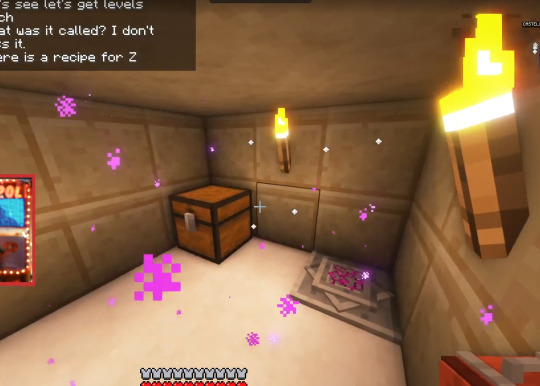

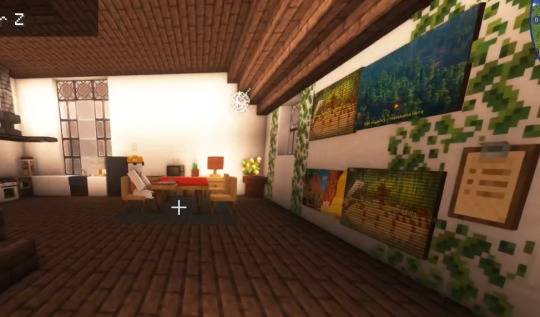

They chit-chat for a bit, notably WB40 apologizes for the sporadic meeting, as the "communications channel" (canal de comunicaciones) is no longer functioning.
q!pol talks about how many things have changed on the island, and that, even after a long time, he still wants to continue making videos. and glances at the screenshots of the original QSMP teaser hung up on the wall behind him.
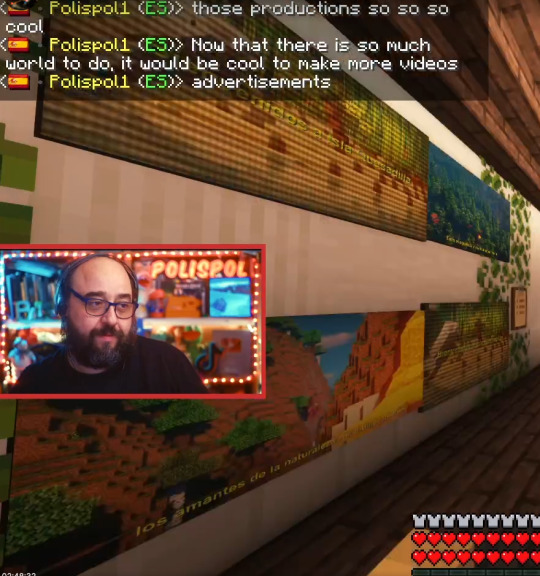

(a bit unrelated, but there were also the four federation posters on other side of the room)
He states how it might be weird if they (the other islanders, i presume) see them recording together.
WB40 mentions how the boss hasn't been too happy with the current situation, that they're a bit afraid of them, and asks if q!pol has talked to them recently. (apparently he has?? a very small talk though) They leave q!pol two gifts, a honey cookie, from the guys in the cafeteria, and two monitors, a gift from themself.
-
"The old days. In the end, no matter how much time passes, everything goes back to as it was before... The old days." - q!Pol
#qsmp#q!pol#q!polispol#this happened like an hour or two ago?#kinda gave up near the end my spanish is so bad#the worker also mentioned a labrynth production as one of his latest works#and idk enough to know if thats a reference to something he did pre-qsmp or something
372 notes
·
View notes
Text
Love how the world of the scu (shrek cinematic universe) is made up of fictional countries like far far away and duloc, vaguely european-looking fairy tale landscapes, and the country of Spain
#i can't remember any time they refer to it by name but they mention multiple cities#and they use spanish as an adjective or to describe the language#now that of course could be chalked up to translation convention thing but that in addition to a place that looks a lot like Spain#and has cities that are called Madrid and Santiago de Compostela#im going to infer that Spain exists in the shrek universe#shrek#puss in boots
2K notes
·
View notes
Text
ever since annie said “and who the hell are you always texting??? 🤨 Everyone You Know Is Here!!! ✋🏻🙄” I haven’t been able to get this image of jeff texting himself out of my head so I drew a Very Shitty cartoon version of what’s been infesting my brain. do with this what you will (even if that is “🤨 what the fuck. anyway” *scrolls*)

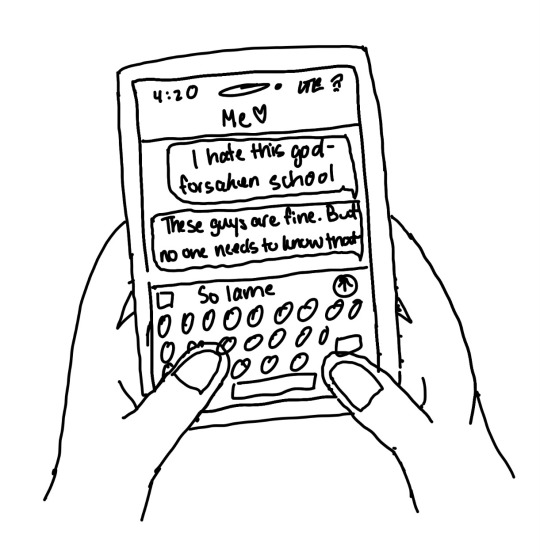
#did this instead of paying attention in spanish 101#omg spanish 101??? community reference haha!!!#also I am NOT a fucking artist and I Never Draw but yk.#I’m microdosing on creating shitty art to get over my fear of incompetency and failure#just do things for the love of it yk#whatever#community#nbc community#community nbc#jeff winger
248 notes
·
View notes
Text

que bien hablas hija!
379 notes
·
View notes
Text
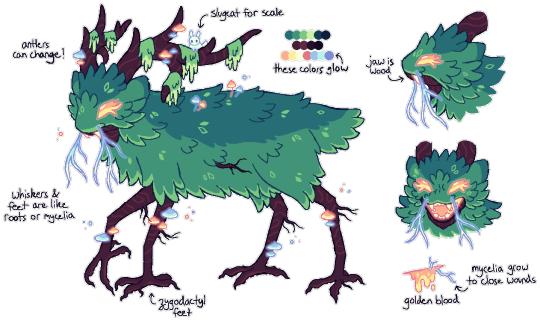
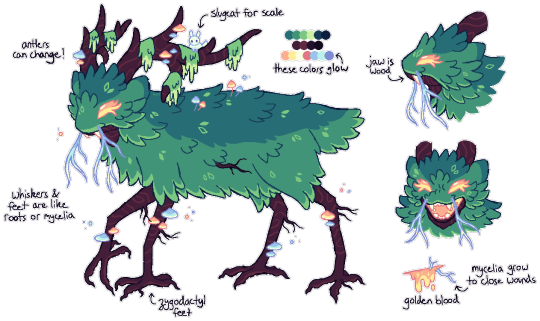
posting this out of order because i'm REALLY PROUD of it. hi this is the Wild!!! I finally gave it a design, based on the mycorrhizal network prompt :]
Uhhh. Basically, the Wild is a Being (in summary, a god-thing that both rules over, and is, its domain)! Its domain is the Ancient Glade, an enormous old growth forest located in the Dreaming local group. During the construction of the group's senior, a large portion of the Wild's domain was destroyed, so the Wild basically went into hibernation because it had been severely weakened.
This reference is for what the Wild would look like if it were to wake up (right now its body is eepy asleepy in a clearing somewhere deep in the Ancient Glade, and pretty overgrown). Its body is vaguely rain deer-shaped, but is technically a complex network of plants and fungi working together as one! Because I think it's really cool :]]
Technically the entirety of the Wild's domain would be considered a mycorrhizal network, but I don't want to make a reference for an entire region LOL. Just know that the Ancient Glade is extremely dangerous and trespassing creatures almost always mysteriously disappear (read: get eaten). It is by a stroke of luck that the Wild tolerates the presence of TERRA's creatures.
also @banyanas tagging you bc i think you might like this freakish beast!
#raintailed's art#funguary#funguary2024#beingverse#rain world#rw#rain world oc#my ocs#the wild (oc)#reference#long post#im crazy. im crazy. im crazy. can you believe this is a rain world oc?#hmm... a game where you struggle to survive in a hostile ecosystem... why not make a character that IS a hostile ecosystem#BTW the plants on its antlers are based on spanish moss
67 notes
·
View notes
Text
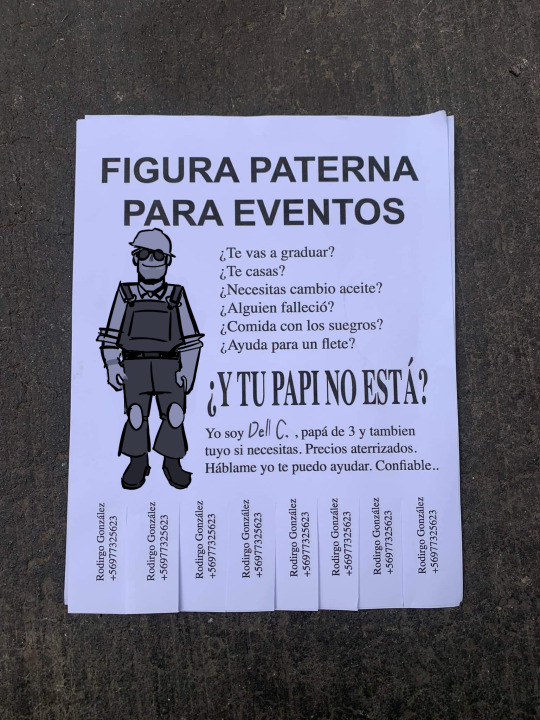
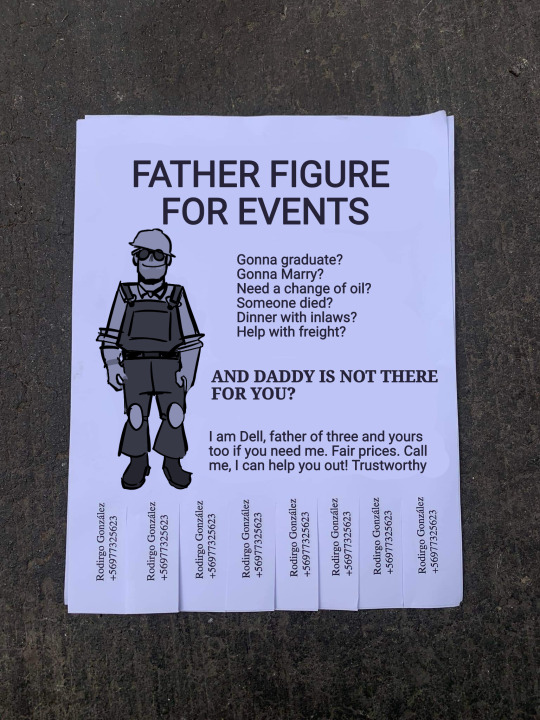
Engineer, you'll forever be famous
#team fortress 2#tf2 fanart#tf2 engineer#tf2 engie#i open my hand and offer you more tf2 spanish memes#he would make a lot of money fr#you can choose who he refers to when he says “father of three”#tf2
121 notes
·
View notes
Text

Day 9 challenge- Spy
#tf2#tf2 fanart#tf2 spy#tf2 spy knows spanish too#did you know that?#matador reference#bull fighter#tf2 demoman#tf2 scout#because they are in there#the ambassador#minarosario#if you read this you should know#thank you for your support#the challenge has ended!#yippie
181 notes
·
View notes
Text
can i complain about mono eng speakers again or are people gonna send me anon hate
64 notes
·
View notes
Text
Most Essential Vocabulary #1
I decided to compile a list of some of the most basic and essential vocab for Spanish since I couldn’t totally find a lot.
These are going to be the words that you’re going to be using and seeing the most for Spanish, so it will come across as very basic for some
I decided to do this in multiple parts because there are lots of topics - so if you have suggestions on certain topics, please let me know! There probably will be words repeated for different “categories”
Pronouns
yo = I
tú = you [informal]
usted = you [formal]
nosotros = we [m+m, m+f]
nosotras = we [f+f]
ustedes = you all [for Spain it’s formal, for Latin America it’s formal and informal]
vosotros = you all [m+m, m+f; informal, Spain]
vosotras = you all [f+f; informal, Spain]
él = he
ella = her
~
elle = they
[no specified gender; this is not considered “proper” Spanish, but it is used in many queer communities for someone non-binary; “proper” Spanish only really has “he” or “she” or refers to someone of unknown or unspecified gender in vague terms like alguien “someone” or una persona “a person” and conjugates them with 3rd person singular]
-
Question Words
qué = what
que = that [connecting clauses]
lo que = what, “the thing that”, that which [a stand in for a noun]
por qué = why
el por qué = “the reason why”, “the motive”
porque = because [connecting clauses]
cuál, cuáles = which, which ones
dónde = where
donde = where [connecting clauses]
cuándo = when
cuando = when [connecting clauses]
cómo = how
como = as, like [connecting clauses]
cuánto/a = how much/many
cuanto = so much [or en cuanto “insomuch” or “as far as”]
~
cuánto/a is used with countable objects
For using “how + adj/adv” you have to use a separate expression; in more literary Spanish this is cuán which is not used very much now except in some lyrics and poetry. For everyday Spanish there’s a separate word/phrase:
qué tan = how + adj/adv [Latin America]
¿Qué tan rápido es? = How fast is it?
¿Qué tan larga es la historia? = How long is the story?
¿Qué tan profundo es el océano? = How deep is the ocean?
cómo de = how + adj/adv [Spain]
¿Cómo de grande es? = How big is it?
¿Cómo de alta es la montaña? = How high is the mountain?
¿Cómo de ancho es el río? = How wide is the river?
-
Prepositions
Please be aware certain prepositions are used differently than others. The main ones to be very aware of are: a, de, en, por, para, and con
...By far, a is the most versatile and has the most uses, followed by de
Primarily this is just a list of things to know, but some of them require proper context to fully understand in my opinion
a = to
de = of / from
en = on / in
por = for / by, via
para = for / up to / in order to
con = with
sin = without
sobre = on, upon / about, pertaining to
acerca de = about, pertaining to
hacia = toward, towards
bajo = under
debajo (de) = under, underneath
encima (de) = on top of
desde = from, since
hasta = until, up to
según = according to
antes = before
después = after
tras = following, after
entre = between
enfrente (de) = in front of, facing
junto/a = together
junto a = next to, beside
al lado de = next to
durante = for (a period of time) / during
mientras = while
a través de = through
a lo largo de = throughout
alrededor de = around, surrounding
mediante = through, via, by means of
por medio de = through, via, by means of
vía = via
versus = versus [exactly like English... because it’s Latin; the pronunciation is different obviously]
contra = against, versus/vs / against, up against [e.g. contra la pared “(up) against the wall”]
-
Standard Spanish 101 Vocab
algo = something
nada = nothing
la nada = nothingness
alguien = someone
nadie = no one
el hombre = man
el caballero = gentleman / man [lit. “knight” or “horseman”]
el señor = sir, gentleman / lord / Mr.
la mujer = woman [potentially “wife”]
la dama = lady / woman
la señora = lady / madame, Mrs.
la señorita = miss, (young/unmarried) lady
alto/a = tall, high
bajo/a = short, low
gordo/a = fat
flaco/a = skinny, thin
delgado/a = skinny, thin
grande = big
pequeño/a = small
inteligente = intelligent
(ser) listo/a = (to be) smart
(estar) listo/a = (to be) ready
rico/a = rich
pobre = poor
guapo/a = good-looking
lindo/a = cute, good-looking
bonito/a = cute, good-looking
feo/a = ugly
joven = young
viejo/a = old
menor = younger / minor
mayor = older, elder / major
justo/a = fair, just
injusto/a = unjust, unfair
fácil = easy
difícil = hard, difficult
apenas = hardly, barely
a duras penas = just barely
fuerte = strong
débil = weak
veloz = quick
rápido/a = fast [adj]
rápido = quickly, fast [adv]
lento/a = slow [adj]
lento / lentamente = slow, slowly [adv]
trabajador(a) = hard-working
perezoso/a = lazy
tonto/a = stupid, silly
ingenioso/a = ingenious, clever
bueno/a = good
bien = good, well [adv]
malo/a = bad
mal = badly, wrong [adv]
equivocado/a = wrong, incorrect
genial = wonderful, amazing
maravilloso/a = wonderful / wondrous, marvelous
pésimo/a = really bad, awful
alegre = happy
feliz = happy
triste = sad
enojado/a = angry
preocupado/a = worried
asustado/a = surprised / scared
enfermo/a = sick
mejor = better
el/la mejor = the best
peor = worse
el/la peor = the worst
largo/a = long
corto/a = short
vivo/a = alive, living
muerto/a = dead
presente = present, here
ausente = absent
-
Time - Days
Note: All days of the week and all months are masculine
lunes = Monday
martes = Tuesday
miércoles = Wednesday
jueves = Thursday
viernes = Friday
sábado = Saturday
domingo = Sunday
la semana = week
el fin de semana = weekend
el finde = weekend [regional slang]
el calendario = calendar
el horario = schedule, timeframe
el día [m] = day
la fecha = date (calendar)
la cita = appointment / date (romantic)
hoy = today
ayer = yesterday
anteayer = the day before yesterday
esta noche = tonight
anoche = last night
mañana = tomorrow
pasado mañana = the day after tomorrow
la tarde = afternoon / evening
el atardecer = evening, dusk
la mañana = morning
el amanecer = morning, daybreak, sunrise
el mediodía = noon
la medianoche = midnight
la madrugada = the early morning, “wee hours of the morning” [when it’s morning but still dark]
el alba [f] = dawn
la salida del sol = daybreak, sunrise
la puesta del sol = sunset
ponerse el sol = for the sun to set
el crepúsculo = twilight / dusk
diario/a = daily [adj]
a diario = daily, happening every day [adv]
cotidiano/a = daily, everyday
temprano/a = early
temprano = soon [adv]
tarde = late [adj / adv]
próximo/a = next
siguiente = following
al día siguiente = the next day, the following day
anterior = previous
primer, primera / primero = first
segundo/a = second
la mitad = half [n]
medio/a = half [adj]
tercer, tercera / tercero = third
el/un tercio = a third / one-third, 1/3
cuarto/a = fourth
quinto/a = fifth
sexto/a = sixth
séptimo/a = seventh
octavo/a = eighth (or “octave”)
noveno/a = ninth
décimo/a = tenth
el décimo = decimal
último/a = last, latest
-
Time - Months
enero = January
febrero = February
marzo = March
abril = April
mayo = May
junio = June
julio = July
agosto = August
septiembre = September
octubre = October
noviembre = November
diciembre = December
el mes = month
mensual = monthly
la quincena = fortnight, two weeks
nuevo/a = new
la luna nueva = new moon
lleno/a = full
la luna llena = full moon
la medialuna = half moon / crescent
creciente = growing
la luna creciente = crescent moon
la primavera = spring
el verano = summer
el otoño = autumn, fall
el invierno = winter
la estación = season
la fiesta = holiday [or “party”]
la Navidad = Christmas
la Nochebuena = Christmas Eve
el Año Nuevo = New Year’s
la Nochevieja = New Year’s Eve
la víspera = eve / evening [with holidays it’s used as “the day before”, or sometimes “vigil”; so la Nochevieja is also sometimes la víspera del Año Nuevo]
Día de los Reyes Magos = Three Kings Day / The Epiphany
San Valentín / el Día de San Valentín = Valentine’s Day
la Cuaresma = Lent
Miércoles de Ceniza = Ash Wednesday
el Carnaval = Carnival / Mardi Gras
la Semana Santa = Holy Week
la Pascua = Easter
el Día de (los) Muertos = Day of the Dead
(el) Halloween = Halloween
el Día de Acción de Gracias = Thanksgiving [North America; sometimes just called Thanksgiving or Sangiving]
el Día de Todos (los) Santos = All Saints Day
Día de (la) Independencia = Independence Day
Other countries have their own holidays like Día de la Constitución “Constitution Day” or Día de la Revolución “Revolution Day”, or something more regional like la Tomatina in Spain, or Día de los Santos Inocentes which is “the Day of Holy Innocents” but sometimes translated as “April Fool’s Day”
This is also not counting certain religious holidays or folk holidays, which can vary from country to country
~
For dates in Spanish, you typically use the number + the month: el diecisiete de marzo for example reads as “the 17th of March” or “March 17th”
The ONLY exception is the 1st of every month is el primero instead of saying el uno. As an example: el primero de enero is “January 1st” or “the 1st of January”; this is done because it would be awkward to say “the one of January”
For days of the week you will see something like Viernes 13 [trece] “Friday the 13th” or Martes 13 “Tuesday the 13th” (which is the day of bad luck in Spanish)
-
Nature / The World
el sol = sun
la luna = moon
la estrella = star
el planeta [m] = planet
el mundo = world
el árbol = tree
la flor = flower
la hoja = leaf
la semilla = seed
el jardín = garden
el bosque = woods, forest
la selva = forest
el océano = ocean
el mar = ocean [sometimes feminine]
el río = river
el arroyo = stream
el lago = lake
el estanque = pond
la orrilla = shore
la isla = island
la ola = wave (water)
el volcán = volcano
la montaña = mountain
la sierra = mountain range [or “saw” in tools]
la piedra = stone
la roca = rock
el tiempo = time / weather [or “grammatical tense”]
la hora = hour
la lluvia = rain
la nieve = snow
el granizo = hail / hailstone
el hielo = ice
el viento = wind
la ventisca = blizzard
la tormenta = storm
la nube = cloud
la niebla = fog, mist
la neblina = mist, haze
el relámpago = lightning [commonly refers to “the flash of lightning” specifically]
el rayo = lightning, bolt (of lightning) [commonly “lightning” or “lightning strike”]
el trueno = thunder [refers to “the sound” specifically]
la arena = sand
el desierto = desert
el cañón = canyon
el risco = cliff
el monte = wilderness / mountain, mount
la hierba = grass / herb
las malas hierbas = weeds [lit. “bad grasses”]
alto/a = tall, high
la altura = height
profundo/a = deep
poco profundo/a = shallow
la profundidad = depth
-
The Human Body - Basics
el cuerpo = body
el peso = weight
la altura = height
la estatura = height, stature
el hueso = bone
el órgano = organ
la sangre = blood
la vena = vein
el sudor = sweat
la cabeza = head
la cara = face
el cerebro = brain
el ojo = eye
la nariz = nose
la oreja = ear [outer]
el oído = ear [inner]
la ceja = eyebrow
la frente = forehead
el cuello = neck
la garganta = throat
la espalda = back
la columna (vertebral) = spine / spinal column
el espinazo = backbone, spine
el hombro = shoulder
el brazo = arm
la mano = hand
la muñeca = wrist
el dedo = finger
el pulgar = thumb
el índice = index finger, pointer finger
el dedo medio = middle finger
el dedo anular = ring finger
el meñique = pinky
el puño = fist
el nudillo = knuckle
el tronco = torso [or “trunk” for trees]
el pecho = chest
el seno = breast / bosom
[in everyday speech - and vulgar speech - this is la teta “boob” or “tit”]
el estómago = stomach
la barriga = belly / gut
la panza = belly
los intestinos = intestines, bowels
la tripa, las tripas = “stomach” / innards, entrails
las entrañas = innards, entrails, “one’s insides”
la cintura = waist
la cadera = hip
la pierna = leg
la rodilla = knee
el tobillo = ankle
el pie = foot
el dedo de pie = toe
el dedo gordo = big toe
el meñique (de pie) = pinky toe
[the other toes are known as el segundo dedo “second toe”, el tercer dedo “third toe”, and el cuarto dedo “fourth toe”]
el corazón = heart
el pulmón = lung
el hígado = liver
el músculo = muscle
el tejido = tissue (medical)
la uña = nail (finger/toe)
el pelo = hair (any kind)
el cabello = hair (specifically on the head)
los sentidos = the senses
la vista = eyesight, sight
el oído = hearing, sense of hearing
el olfato = smell, sense of smell
el gusto = taste, sense of taste
el tacto = touch, sense of touch
-
Around the House
la casa = house
el hogar = home / hearth
el apartamento = apartment
el piso = floor
[el piso in Spain is typically “apartment”, most commonly translated as “flat” for British English]
el techo = ceiling / roof
el tejado = roof
la mesa = table
la silla = chair
el sillón = large chair / armchair
la cama = bed
la almohada = pillow
el sofá [m] = sofa, couch
los muebles = furniture [el mueble is one piece]
el espejo = mirror
el reloj = clock / watch, stopwatch
el estante, los estantes = shelf, shelves / shelving
el gabinete = cabinet
el refrigerador / la refrigeradora = refrigerator
la nevera = refrigerator
el congelador = freezer
la tarea = task, chore [commonly meaning “homework”]
los deberes = chores / duties
los quehaceres = chores
la puerta = door
la ventana = window
la sala = room
el salón = room / large room
el cuarto = room
la habitación = bedroom
el dormitorio = bedroom [lit. “dormitory” or “sleep-room”]
el cuarto = bedroom, personal room
la sala de estar = living room
el salón = living room [again, just “big room”]
la sala = living room [again, just “room” but it’s any kind of room you might invite someone into]
[some places have other words for it]
la cocina = kitchen [also “cuisine” or “cooking”]
el comedor = dining room [or “mess hall”; but any room for “eating”]
la lavandería = laundry room / laundromat
el vestíbulo = foyer, vestibule
la escalera = staircase / stairwell
las escaleras = steps, stairs
el baño = bathroom [lit. “bath”]
el cuarto de baño = bathroom
el inodoro = toilet bowl
[sometimes el váter]
el clóset / el armario = closet / armoire, wardrobe
el garaje = garage
el sótano = basement
el ático = attic
el desván = attic
el pasillo = hallway
el estudio = study
el gimnasio = gym
la biblioteca = library
la despensa = pantry / cupboard
el almacén = storeroom, storage closet
[you might see this as “warehouse” for buildings; it means a “storage area” literally]
la oficina = office
la lámpara = lamp
la luz = light
las luces = light
encender = to turn on (electronics) [otherwise it’s “to kindle” or “to set on fire”]
apagar = to turn off (electronics) [others it’s “to extinguish” or “snuff out (fire/candles)]
la televisión / la tele = television / TV
el teléfono = telephone, phone
el celular = cellphone [more Latin America]
el móvil = mobile, cellphone [more Spain]
el tenedor = fork
el cuchillo = knife
la cuchara = spoon
el plato = plate
el tazón = bowl
el bol = bowl
el cuenco = bowl
el horno = oven
la estufa = stove, stovetop
el vaso = glass [for water]
la taza = cup / mug [for tea/coffee]
la copa = glass [for wine]
la vela = candle
los trastes = “the dishes” [regional, I think]
la plancha = iron (for clothes) [lit. la plancha is a metal thing you use to “press” on either food or clothes; not to be confused with el hierro “iron” the metal in English]
-
Basics of Clothing
la ropa = clothes, clothing
la prenda = garment, item of clothing
la ropa interior = underwear
el calzón / los calzoncillos = underwear
las bragas = panties, female underwear
el sostén, el sujetador = bra
los calcetines = socks
las medias = socks
[las medias can also mean “stockings” or “tights”]
la camisa = shirt
la camiseta = t-shirt
los pantalones = pants, trousers
los zapatos = shoes
los tacones = heels
las botas = boots
el vestido = dress
la blusa = blouse
la falda = skirt
la chaqueta = jacket
el abrigo = coat, overcoat [usually a “warm coat” or sometimes “winter coat”; a coat specifically to keep you warm outside]
el cinturón = belt
la bufanda = scarf
el guante, los guantes = glove, gloves
la cartera / el monedero = wallet
las gafas / los lentes = glasses
las gafas de sol = sunglasses
[the older word for “glasses” is los anteojos - it comes across like “spectacles” and shows up in some textbook, but las gafas is the most common one today]
el bolso = purse
[some people will use la bolsa - typically though, la bolsa is “bag” like a shopping bag or trash bag]
el bolsillo = pocket
el botón = button
el broche = clasp, fastener, button
la joyería = jewelry
el collar = necklace
el anillo = ring
el pendiente, los pendientes = earrings [regional]
el aro / el arete = earring [regional]
el brazalete = bracelet [often on the arm]
la pulsera = bracelet [often at the wrist where one’s “pulse” is]
el pijama / los pijamas = pajamas, PJs
el paraguas = umbrella
la sombrilla = umbrella [regional]
el impermeable = raincoat [regional]
la gorra = cap [small hat]
el sombrero = hat [with a wide brim, usually all the way around]
el suéter = sweater
la sudadera = sweatshirt
los jeans = jeans
los bluyines = jeans [lit. “blue jeans” but could be any color in Spanish]
los vaqueros = jeans [Spain; lit. “cowboy (pants)”]
[there are LOTS of regionalisms for jeans]
la seda = silk
la piel = leather / skin
el cuero = leather
el algodón = cotton
la lana = wool
el terciopelo = velvet
el encaje = lace
la tela = fabric
el mezclillo = denim
-
Basics of Colors
Note: Some names of colors do not change for gender as they are derived from nouns - to distinguish them, I’m not including the definite articles to identify them as adjectives.
As an example, rosa “pink” comes from “rose”, so la camisa rosa “pink shirt” or el abrigo rosa “pink coat”
Note 2: When talking about colors as “the color” itself, it is always masculine; el rojo is “the color red”. This is important for distinguishing certain nouns - el naranja is “the color orange” vs. la naranja “orange (fruit)”, or el rosa “the color pink” vs. la rosa “rose (flower)”, or el turquesa “the color turquoise” vs. la turquesa “turquoise (gem)”
rojo/a = red
naranja = orange
anaranjado/a = orange, orangey
amarillo/a = yellow
verde = green
azul = blue
azul claro = light blue
azul celeste = light blue / sky blue
azul oscuro = dark blue
azul marino = navy blue
añil = indigo
turquesa = turquoise
lila = light purple / lilac, lavender (color)
morado/a = dark purple
púrpura = purple
rosa = pink
rosado/a = pink, rosy
marrón = brown
(color) café = brown
negro/a = black
blanco/a = white
gris = gray
oro = gold
dorado/a = gold, golden
plata = silver
plateado/a = silvery
bronce = bronze
bronceado/a = bronzed, tanned
arcoíris, arco iris = rainbow
oscuro/a = dark
claro/a = light (color)
castaño = brown (hair/eyes) [lit. “chestnut”]
caoba = mahogany, auburn (hair/eyes) [lit. “mahogany”]
#Spanish#language learning#spanish vocabulary#langblr#reference#language#languages#learning Spanish#refs#vocabulario
955 notes
·
View notes
Text
crying laughing at the fact that i made a character from my old kung fu panda fic canonically latino. bro was so starved for rep he altered the timelines of history so that argentina and ancient b.c. china existed at the same time
#star's stuff#CRYING he speaks in spanish he's named after a stuffed animal i used to have and he's directly a reference to gandalf#AND ARGENTINE DKJSHK#dl
65 notes
·
View notes
Text
On the boiling rock, after the betrayal.
The guards take Mai and Ty Lee, and others prepare to burn them if necessary.
Azula, stop the guards: Don't waste your breath.
Azula: There are only fools here, two traitors, and a broken heart.
Azula, starting to walk away from everyone: Take out the traitors or I won't continue doing the cartoon, thank you.
#Azula#Mai#Ty Lee#Maizulee#atla#avatar the last airbender#KND#Kids Next Door#Los chicos del barrio#Reference to KND#I think it's more fun in Spanish now that I realize it...
21 notes
·
View notes
Text
I don't know if this has been said before but the *one* thing I like about the Spanish dub is that during both seasons we hear two pet names that Crowley has for Aziraphale, both translated from angel, obviously.
The first one is literally the word itself (ángel) which, as far as I know, has no other meaning or connotation. It's literally a descriptive word for the entity he is.
The thing is!! Crowley uses it all through season 1, except for one moment: when he's telling Azi to get in the car after the Anathema incident. What he says then and later in season 2 (every time, even in "he's just an angel... I know", when the word that should've been used is the descriptive one) can be translated to "little angel" (angelito), which IS an actual pet name only used between partners.
I love that it's only used in the second season, it's another way to tell the audience that some time has gone by and that they're a bit closer. All the touches and looks and everything show that, but also the way he refers to him.
#last thing#i believe the only “little angel” said in season 1 is a bit of a reference to the book#because in the show it's not explicitly said that anathema thought the were a couple#and even if it wasn't also in the Spanish dub you know that the translators were trying to give them a sort of a soft moment#one that both Anathema and the audience could understand as something very human#yep sorry that's all#good omens#good omens 2#crowley#innefable husbands#aziraphale#aziracrow#neil gaiman
46 notes
·
View notes